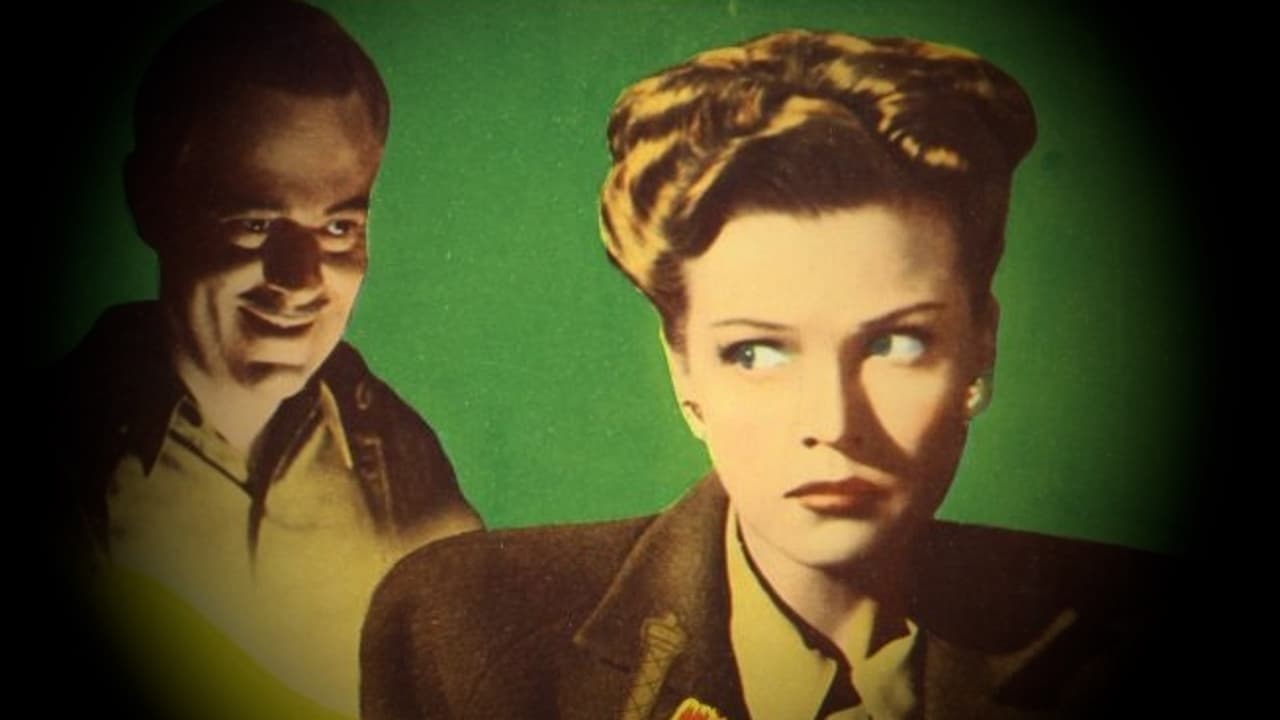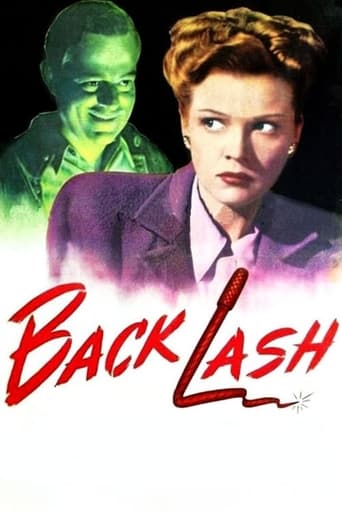

If you're interested in the topic at hand, you should just watch it and judge yourself because the reviews have gone very biased by people that didn't even watch it and just hate (or love) the creator. I liked it, it was well written, narrated, and directed and it was about a topic that interests me.
... View MoreIt's a good bad... and worth a popcorn matinée. While it's easy to lament what could have been...
... View MoreThis movie feels like it was made purely to piss off people who want good shows
... View MoreA clunky actioner with a handful of cool moments.
... View MoreThis is a lightweight noir from 20th Century Fox's B division -- competent players, no major stars, Eugene Forde directing, with a nicely tangled plot. John Eldredge is dead and the obvious suspects are his wife, Jean Rogers, and his his business partner, Robert Shayne. His doctor reports he's been dosed with poison a couple of times, but he has not reported it at Eldredge's insistence, and Shayne owed him a lot of money. But there are some complicating factors and as cops Richard Benedict and Larry Blake follow the clues, the district attorney takes an interest. Is that actually Eldredge's corpse?Fox would shut down B production the next year -- Sol Wurtzel, the division head, was almost universally despised as a vulgarian, and only the fact that his movies always made money kept him in business. However, the long post-war downturn in movie-going was starting, and Wurtzel would retire in 1948.
... View More"Backlash" is clearly a B-movie. Its short running time (a little over an hour), absence of big-name stars and overall plot practically scream B! And, as far as B-movies go, it's okay...just okay.John Moreland doesn't like his life nor his wife, though he's kept this very much to himself. So, when he sees an opportunity, he fakes his own death AND implicates his wife as his murderer! Naturally, the plan doesn't go off without a hitch, as the film was made during the era when crime certainly did NOT pay!The story isn't bad but the film often resorts too much to talk...and the talkiness of the picture didn't help it. In addition, it features one of the worst and most over-used clichés in mystery films...the guy who calls up and says "I can't tell you over the phone...can you come over here right away?". You just KNOW that the guy'll be dead before anyone arrives to help him or hear his evidence! These are reasons why I think this is a purely average time-passer and not something with a bit more to offer.
... View MoreThis is one of those Twentieth Century Fox B pictures about crime and detection made in the forties, with little known actors (I am being polite, frankly they were and are more properly described as 'unknown', and only a few of the actors in such pictures became 'known', a prominent example being Lloyd Nolan, though he does not appear in this one). It is directed by the regular B picture director, Eugene Forde, who directed many Charlie Chan detective films. (It is a curious fact that Forde's real name was Ford, and that he added an 'e' on the end, which seems rather affected, don't you think?) The script is by Irving Elman, who the next year did the screenplays for the Bulldog Drummond films 13 LEAD SOLDIERS (1948, see my review) and THE CHALLENGE (1948, see my review). After those Drummond films, Elman only wrote for television and never returned to features. Immediately after doing BACKLASH, Elman worked again with Eugene Forde ('He with the E') twice again, and wrote JEWELS OF BRANDENBURG (1947) and THE CRIMSON KEY (1947), both directed by Forde. The plot of this film is somewhat contorted. A criminal lawyer meets up with a former criminal client who has just robbed a bank and wants to leave a bundle of money with him. Then the lawyer's car is found burnt out, having gone over a California cliff. What appears to be his body is inside, with .25 calibre bullets in the heart. (Strange that. Why .25? Why not .32? Was Elman unfamiliar with that inescapable American accessory, a gun?) Then the gun is found and it belongs to the lawyer's wife, who is having an affair with the District Attorney. Murkier and murkier! The criminal, with the literally colourful name of Red, disappears. But then he reappears. He says he did not kill the lawyer. The film is full of flashbacks when the various characters narrate their recollections to each other and to the police. These work very well. Who really wants to kill whom and why? Who is up to what? There are red herrings aplenty swimming around in circles, and some of them are salted. This is all good entertainment for those who enjoy crumby old black and white B pictures. I like watching them because I am absolutely fascinated by the manners and mores of the people portrayed, as they vary from decade to decade. Every decade, the character types cease to exist and are replaced by new types more typical of their times. For instance, if you searched the whole of America today from Maine to Florida and from South Carolina to Seattle, you could not find a single person like any of the characters in this film. They have all gone. There are no people like that anymore. Sociologists should give much more attention to these things, and should watch old movies like hawks for signs of vanishing species of individual. This film has only been reviewed by one other person, ten years ago, and he was absolutely right to call attention to the one strange expressionistic scene where two people, one a hobo (uncredited and what is more, unlisted as a character in the IMDb credits) and the other a desperate man on the run, both crouching in what was then called a 'flop' at night, are talking to one another. This unusual scene does indeed look like it came from another movie, and it is as if a different director and cameraman were used to shoot it. Wouldn't it be interesting to know what lay behind this anomaly? Well, we will never know, but it is fun to spot such things, and can even beat trying to guess whodunnit.
... View MoreBacklash is a pretty decrepit programmer built upon a nifty premise: A jealous husband so hates his wife that he frames her for his own murder. He's a successful lawyer, middle-aged, grey and sporting a Thomas E. Dewey mustache, and, as such, indistinguishable from just about every other adult male in the cast (which may be among the most anonymous in the history of movies; the collective Q-rating of Backlash would be in the negative numbers).When a burned-out car with a body in it turns up in a ravine, the police potter around trying to find out first who was killed and then who killed him. There was a cop-killer the lawyer saved from a murder charge; his law partner who owned him big money; the district attorney who may have been seeing his restless younger wife; another temptress connected to both the partner and the cop-killer; and so on. In fact there are a few too many red herrings squeezed into this compact (66-minute) can.Surprisingly, Backlash boasts one fine scene which looks as though it was cut from a much better movie and spliced in by mistake. In a railroad yard at night, one of the principals meets up with a drifter who offers to share his bottle and some philosophical musings. It's filmed as an extended, highly shadowed two-shot that grows tighter and more oppressive as the talk turns to the murder case that dominates the headlines - and then to more urgent concerns. It's a sequence that makes Backlash almost worth a look.
... View More